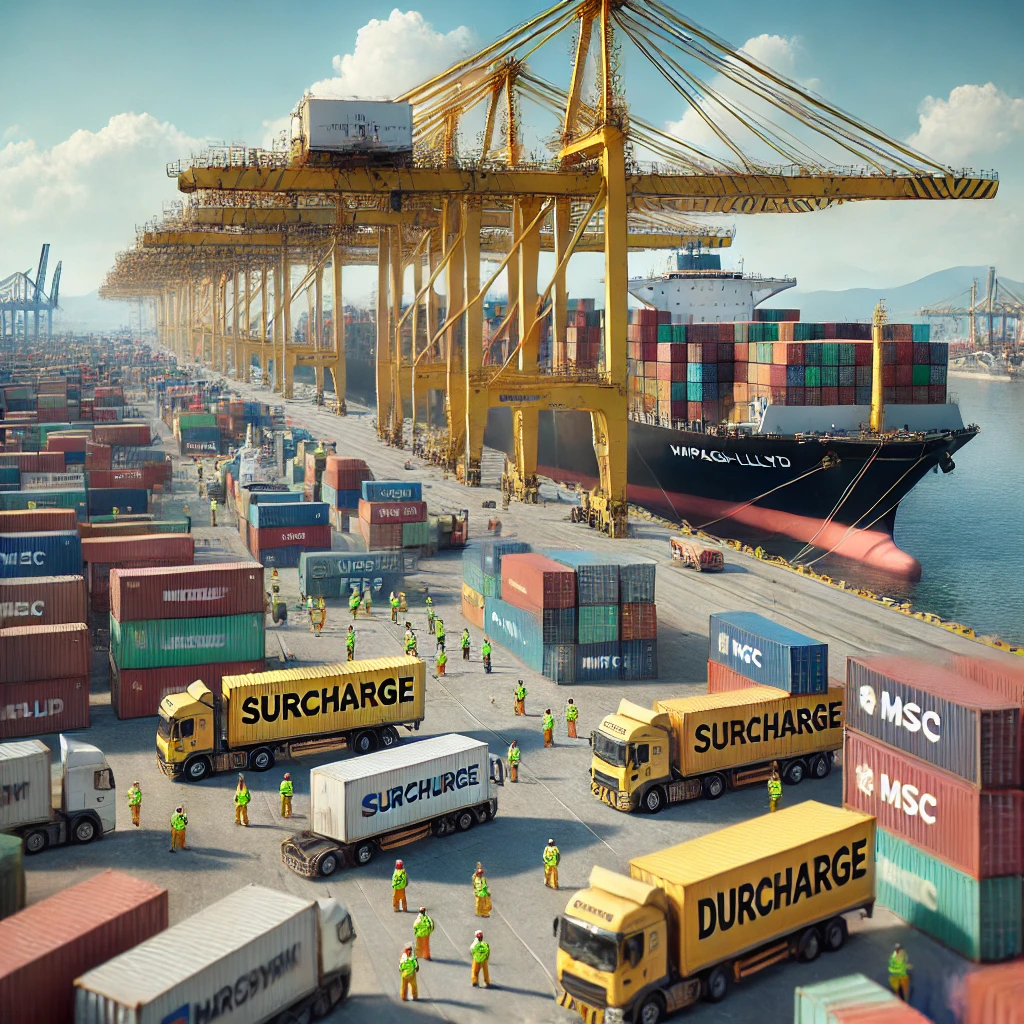
25 Sep Shipping Lines Introduce Surcharges as Potential US Port Strike Looms
As the likelihood of a strike at ports along the US east and Gulf coasts increases, container shipping lines have begun implementing disruption surcharges in preparation for the potential impact.
On September 1, MSC announced it would introduce a $1,000 Emergency Operations Surcharge (EOS) per 20ft container and $1,500 per 40ft container, effective from October 1—the expected strike date. These surcharges will apply to shipments from Europe to the US east and Gulf coasts, as well as to ports in the Caribbean, Mexico, and Canada. In addition, MSC plans to implement a $500 per teu rate restoration initiative for transatlantic shipments, also starting October 1.
French carrier CMA CGM followed suit, advising customers that US east and Gulf coast local port charges would increase to $1,500 per teu for imports and $800 per 20ft container and $1,000 per 40ft container for exports, effective October 11.
Hapag-Lloyd also introduced a Work Disruption Surcharge of $1,000 per teu on container shipments to the US east and Gulf coasts, starting October 18.
These surcharges act as a preemptive measure, warning customers of potential price increases in the event of a strike. Industry experts have noted that the full impact of port blockages on supply chains may take weeks to materialize, particularly in Asia, where vessels delayed on the US east coast could cause supply shortages by November.
Experts highlighted that container carriers learned how to raise rates during capacity shortages, referencing lessons from the pandemic and other crises. They warned that these pricing strategies would likely be applied again if the strike occurs, leading to sharp and rapid rate hikes.
For US exporters, an analysis by supply chain visibility platform FourKites suggested that the automotive and agricultural sectors would be most vulnerable. According to Mike DeAngelis, head of international solutions at FourKites, a strike could severely affect US agricultural exports, potentially leading to higher food prices in countries dependent on American produce. The automotive industry could also face exacerbated supply chain challenges, leading to potential production slowdowns or temporary plant closures.
Inventory shortages could further impact holiday shopping seasons and year-end manufacturing targets. Under US Federal Maritime Regulations, carriers must notify customers of price increases and surcharges at least 30 days before implementation.

